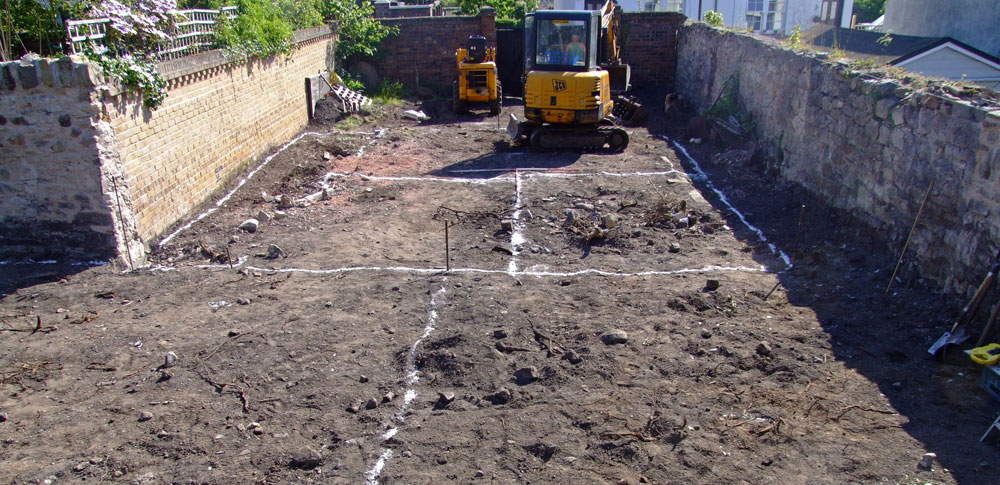Commercial archaeological contractors or units normally work on a UK-wide basis; few are regionally restricted and they provide a whole range of archaeological field services from geophysical services and field-walking through to trial trenching, watching briefs and open area excavations.
Dependent upon the type of site and its position within planning, this fieldwork can range from a small scale programme of trial trenching and geophysical survey to an extensive open area of archaeological excavation.
As within any other contracting business, there are good archaeological contractors and bad archaeological contractors.
Pitfall 1 – Bad eggs (Full post here)
A ‘bad’ archaeological contractor can cause a developer a whole host of problems many of which can cost substantial amounts of money and mean that crucial deadlines are not met.
The knock-on effects of archaeological investigations not being completed on time can lead to stand down time for other project contractors such as earth movers or piling companies.
Pitfall 2 – Cheap as Chips (Full post here)
In procuring an archaeological contractor, a developer understandably will be looking at price, and driven by commercial necessities, will instinctively go for the cheapest. BUT – the cheapest price may not necessarily be all it seems in relation to archaeological investigation.
A cheap fixed price could also indicate that an archaeological contractor has misunderstood the nature and level of the archaeological work they are required to carry out on behalf of the developer.
Of course there is more to archaeology than the fieldwork – and to most developers, post-excavation work is unfamiliar ground and therefore this is the stage at which an archaeological contractor can claw back money to counter the cheap price charged for the fieldwork.
Pitfall 3 – Don’t forget Post-excavation work (Full post here)
Archaeological planning conditions have a number of stages which need to be completed before discharge is granted.
Archaeological units of any standing have their own in-house expertise for post-excavation analysis and reporting others – and others do not. The latter need to rely on external specialists to carry out such tasks as pottery dating, small finds identification, analysis of human remains and so on.
This in turn can prolong the post excavation process because the specialist input required to complete a report to discharge the planning condition can be very slow going and expensive as external experts can be more expensive than in-house specialists.
Choose your archaeological contractor carefully!
Further information
Helen Martin-Bacon, regional director of Wardell Armstrong Archaeology can be contacted by telephone on 01782 276 792 or by email.
Additional comment from BAJR
There are some other safeguards you can view to help make a choice, including; asking if the responsible archaeologist is a Member of the Chartered Institute for Archaeologists; or the Company is an Registered Organisation; find out if the Company or trader has previously completed work to a satisfactory standard in the area; Get a recommendation from other developers who have used the company; Advice from an independent archaeological consultant, who can review any tender document for transparency. A list of available contractors is also available here: http://www.bajr.org/RACSmap/default.asp
